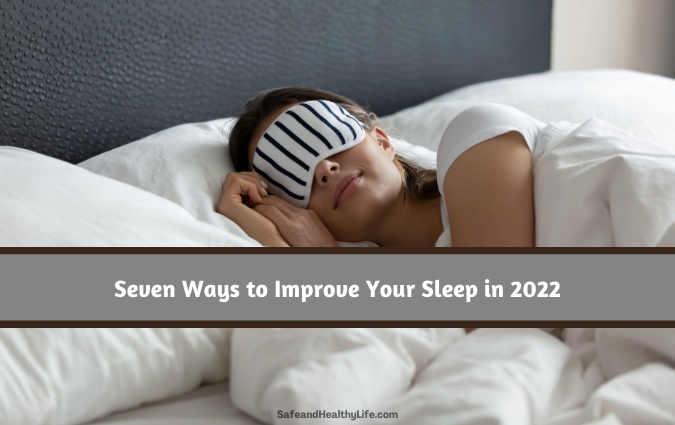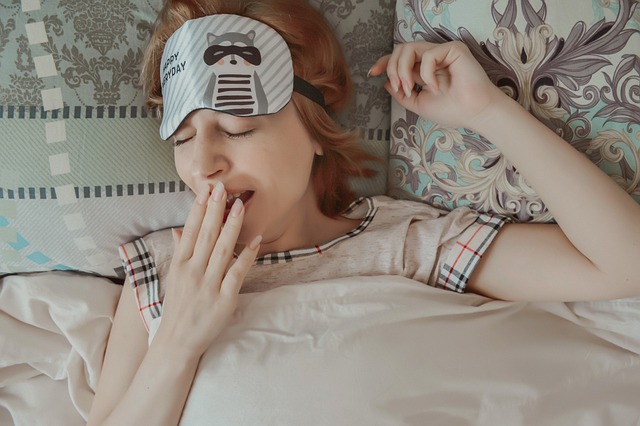
Are you a night owl who spends the night tossing from one side of the bed to another?
Or are you someone who cannot get out of bed till late morning?
If you nodded, my dear friend, it’s high time you fix your sleep schedule.
Sound sleep is an essential bodily function that regulates your mind and body. But at present, the disruptive work environments, food habits, and uncertainty around us have affected us badly.
There could be several reasons you have a messed-up sleep routine, but we all agree with the fact that the pandemic should be blamed.
In a study conducted by the American Academy of Sleep Medicine, 95% of the people suffered from insomnia and disturbed sleep during the Covid 19 pandemic.
And that’s alarming! An average adult requires six to nine hours of sleep for better body functioning. And suppose, you don’t get enough sleep.
In that case, it might impair your abilities, such as your ability to concentrate, make informed decisions, etc.
This article will talk about the importance of sleep, the science behind sleep, and how to fix your messy sleep schedule.
Let’s dig in!
The science behind sleep
Sleep is an essential function that backs your brain function and overall health. Sleep recharges your body, mind and leaves you feeling refreshed and alert. It also helps in keeping the diseases at bay.
But have you ever wondered how chronic lack of sleep could turn into a sleep disorder?
To understand that, let’s understand the science behind sleep.
Our body has an internal clock that regulates when we sleep and wake up– basically controlling our sleep cycle. The internal body clock is responsible for how long we sleep and go to bed, and the clock works on a 24-hour cycle known as the circadian rhythm.
Our brain releases a hormone called adenosine linked to your sleep drive. The adenosine levels are increased during the day and break down at night, which helps you to fall asleep at night.
Wonder how your brain decides if it’s day or night?
Well, your brain has specific nerves in the hypothalamus known as suprachiasmatic nerves, which helps the brain decode if it’s natural or artificial.
When the nerves decode that the natural light has faded away, it releases melatonin that makes you tired.
Similarly, when exposed to natural rays, it releases cortisol that radiates energy, makes you alert, and makes you ready for the day.
Your body gets used to a sleeping pattern, and that’s how your sleep works.
But when your sleeping patterns are altered, the melatonin and cortisol balance is affected. As a result, your brain finds it hard to adjust, causing several diseases and making you dull and unproductive. If not treated early, you are most likely to have severe sleep disorders such as insomnia.
Why do we need to sleep enough?

Photo Credit: Unsplash
If you do not sleep enough, I have bad news for you. Studies have found that people who do not sleep for at least 6 hours a day suffer from poor attention, restlessness, mood shifts, and difficulty making prompt decisions.
Additionally, lack of sleep has been linked to a higher risk of Diabetes 2, Cardiovascular diseases, stroke, and poor mental health.
The pandemic has a drastic effect on the sleep regime of people, especially teenagers. The excessive use of smartphones and devices that emit blue light is one of the leading causes of sleep disorder in the USA population.
So, it’s high time you fix your sleep schedule and walk into 2022 with a healthy lifestyle. Suffice to say, adequate nutrition and a proper lifestyle contribute to a sound sleep.
Besides, here are some of the benefits of a sound sleep–
- Prevents depression
Yes, you heard it right. Research conducted by the JAMA journal found that sleep deprivation is linked with suicides and depression. Sound sleep reduces the risk of mental health disorders, especially depression. Reduces inflammation
A study found that sound sleep reduces inflammation in the body. The study also stated that sleep deprivation could cause such diseases. Getting proper sleep can prevent you from aches in your body.
- It helps you lose weight
A poor sleep regime can affect your desire to maintain a healthy lifestyle and affect your body weight.
Although the link between obesity and sleep is not clear, proper sleep can make you energetic to exercise and maintain your body weight.
- It makes you socially and emotionally sound
Sound sleep has been linked to sound emotional and social intelligence. In a study conducted by the Journal of sleep research, a person’s empathy is directly related to a person’s sleeping habits.
Ways to improve your sleep

Photo Credit: Pixabay
It’s never late than never! So, here are a few steps that can help you improve your sleep –
- Expose yourself to bright light during the day.
Sounds crazy, right?
Well, as discussed earlier, your sleep regime is regulated by circadian rhythm. And a study proved that in people with insomnia, daytime bright light exposure improved sleep quality and duration. It also reduced the time it took to fall asleep by 83%.
- Make a realistic bedtime plan and stick to it every night, even on the weekends
Making a bedtime plan sounds easy. But the challenging part is sticking to it. So, you need to set realistic goals that you can stick to. Besides, it would be easier for you to follow it every day without fail.
- Maintain low light levels in your bedroom and try out scented candles.
Aromatherapy works great to help you sleep better. You can use scented candles or room fresheners that can help you fall asleep fast. Maintaining low light in your bedroom and avoiding distraction can help you feel calm and have a sound sleep.
- Do a digital detox or a “screen ban” on televisions, computers and tablets, cell phones, and other electronic devices in your bedroom, especially at night.
Night Time exposure to light can affect your circadian rhythm. Your brain might feel that it’s day and can restrict the secretion of melatonin – the hormone responsible for sleep.
Suffice to say, the blue lights emitted by smart devices are the worst. So avoid using your phones during the night or use blue-cut lenses to reduce the harm.
- Abstain from caffeine, alcohol, and large meals in the hours leading up to bedtime.
Coffee is one of the most consumed drinks in the USA – consumed by 90% of the population. But excessive caffeine consumption has adverse effects on your sleep and is known to worsen sleep quality.
- Reduce midday or afternoon naps
Power naps or afternoon naps can affect you negatively. Naps during the day confuse your internal body clock and alter the balance. So avoid mid-day naps and go to bed only at night for a sound sleep.
- Take a shower before you jump into bed.
Studies indicate that they can help improve overall sleep quality and help people — especially older adults – fall asleep faster. Taking a shower before sleep also soothes your mind. It gives you a cooling environment that enables you to fall asleep fast.
Conclusion
Sleep is essential for us, just like the way we breathe. The rate at which people suffer from sleep disorders is alarming and needs proper attention.
So, we must take appropriate steps and fix our schedule. 2022 is around the corner, and let’s thrive on walking into the new year with the hope of working on ourselves.
About The Author:
Suhana Siddika is a clinical nutritionist turned freelance health writer specializing in health and wellness, mental health, and nutrition niche.


![[Infographic] Mattress Buying Guide for 2022 Infographic](https://www.safeandhealthylife.com/wp-content/uploads/2017/03/Infographic.png)

